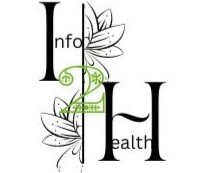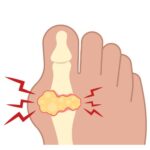High blood pressure, or hypertension, is a major public health issue affecting millions of individuals worldwide. It is often referred to as a “silent killer” because it typically presents no symptoms but can lead to serious health complications such as heart disease, stroke, and kidney damage. This comprehensive overview examines the causes, effects, and management of high blood pressure, supported by scientific evidence and studies.
Understanding Blood Pressure
Definition of Blood Pressure
Blood pressure is the force exerted by circulating blood against the walls of blood vessels. It is expressed in millimeters of mercury (mmHg) and is recorded with two measurements:
- Systolic Blood Pressure (SBP): The pressure in the arteries when the heart beats.
- Diastolic Blood Pressure (DBP): The pressure in the arteries when the heart rests between beats.
A typical normal blood pressure reading is around 120/80 mmHg. Blood pressure is classified as follows:
- Normal: Less than 120/80 mmHg
- Elevated: 120-129/<80 mmHg
- Hypertension Stage 1: 130-139/80-89 mmHg
- Hypertension Stage 2: 140/90 mmHg or higher
Prevalence of High Blood Pressure
According to the World Health Organization (WHO), hypertension affects approximately 1.13 billion people globally, with less than 20% of those having it under control. This condition is a leading risk factor for cardiovascular disease and premature death.
Causes of High Blood Pressure
Primary (Essential) Hypertension
Primary hypertension has no identifiable cause and is believed to result from a combination of genetic, environmental, and lifestyle factors. Factors contributing to primary hypertension include:
- Genetic predisposition: Family history of hypertension increases risk.
- Age: Blood pressure tends to rise with age due to vascular stiffness and other age-related changes.
- Lifestyle factors: Poor diet, lack of physical activity, obesity, and high salt intake are significant contributors.
Secondary Hypertension
Secondary hypertension is high blood pressure caused by an underlying medical condition. Common causes include:
- Kidney disease: Conditions affecting kidney function can lead to hypertension.
- Endocrine disorders: Disorders such as hyperthyroidism or Cushing’s syndrome can elevate blood pressure.
- Medications: Certain drugs, including NSAIDs and some antidepressants, can cause elevated blood pressure.
Scientific Evidence
A study by Kearney et al. (2005) found that lifestyle factors such as high salt intake, obesity, and lack of physical activity were significantly associated with the prevalence of hypertension.
Effects of High Blood Pressure
Cardiovascular Complications
High blood pressure is a major risk factor for cardiovascular diseases, including:
- Coronary artery disease (CAD): Hypertension can lead to atherosclerosis, narrowing arteries and reducing blood flow to the heart.
- Heart failure: The heart must work harder to pump blood, which can lead to hypertrophy and eventually heart failure.
- Stroke: Elevated blood pressure can cause blood vessels in the brain to rupture or become blocked.
Kidney Damage
Hypertension can damage the blood vessels in the kidneys, impairing their ability to filter waste from the blood. This can lead to chronic kidney disease (CKD) or end-stage renal disease.
Eye Damage
High blood pressure can cause hypertensive retinopathy, leading to vision problems and potential blindness due to damage to the blood vessels in the retina.
Cognitive Impairment
There is increasing evidence linking hypertension to cognitive decline and dementia. A study by Skoog et al. (1996) found that midlife hypertension was associated with an increased risk of Alzheimer’s disease in later life.
Diagnosis of High Blood Pressure
Blood Pressure Measurement
The primary method for diagnosing hypertension is through regular blood pressure measurements. This can be done in a clinical setting or at home using a sphygmomanometer.
Ambulatory Blood Pressure Monitoring (ABPM)
ABPM involves wearing a portable device that measures blood pressure at regular intervals over 24 hours. This method can provide a more accurate assessment of blood pressure patterns and help identify “white coat hypertension,” where patients exhibit high readings in clinical settings but normal readings at home.
Laboratory Tests
In addition to measuring blood pressure, healthcare providers may conduct blood tests to evaluate kidney function, electrolyte levels, and assess for underlying conditions that may contribute to hypertension.
Management of High Blood Pressure
Lifestyle Modifications
- Dietary Changes: The DASH (Dietary Approaches to Stop Hypertension) diet emphasizes fruits, vegetables, whole grains, and low-fat dairy, while reducing sodium intake. Research by Svetkey et al. (1999) showed that the DASH diet effectively lowers blood pressure. Link to Study
- Physical Activity: Regular exercise has been shown to lower blood pressure. A meta-analysis by Cornelissen and Smart (2013) found that aerobic exercise can significantly reduce SBP and DBP. Link to Study
- Weight Management: Obesity is a significant risk factor for hypertension. Weight loss of even a modest amount (5-10% of body weight) can have a positive impact on blood pressure.
- Limiting Alcohol and Tobacco Use: Reducing alcohol consumption and quitting smoking can improve overall cardiovascular health and lower blood pressure.
Pharmacological Treatments
Several classes of medications are commonly prescribed for hypertension:
- Diuretics: Help reduce blood volume and lower blood pressure. Furberg et al. (2002) found that diuretics are effective in preventing cardiovascular events. Link to Study
- ACE Inhibitors: Prevent the conversion of angiotensin I to angiotensin II, leading to vasodilation and reduced blood pressure. A study by John G F Cleland, (1994) demonstrated the efficacy of ACE inhibitors in reducing mortality in patients with left ventricular dysfunction. Link to Study
- Calcium Channel Blockers: Relax blood vessels and decrease heart rate, effectively lowering blood pressure.
- Beta-Blockers: Reduce heart rate and the heart’s workload, lowering blood pressure.
Monitoring and Follow-Up
Regular monitoring of blood pressure is essential for managing hypertension. Patients should have routine check-ups to assess the effectiveness of treatment and make necessary adjustments.
Recent Advances in Research
Genetic Factors
Recent research has identified several genetic markers associated with hypertension. A study by Wang et al. (2018) identified common genetic variants linked to increased blood pressure.
Technology and Hypertension Management
Advancements in technology, such as mobile health applications, have shown promise in helping patients manage their blood pressure. A study by LE Zhou et al. (2023) found that mobile health interventions significantly improved blood pressure control.

High blood pressure is a significant public health challenge that requires comprehensive management strategies. Understanding its causes, effects, and treatment options is crucial for preventing serious health complications. Ongoing research continues to uncover the complexities of hypertension and develop innovative strategies for effective management, emphasizing the importance of lifestyle modifications alongside pharmacological interventions.







